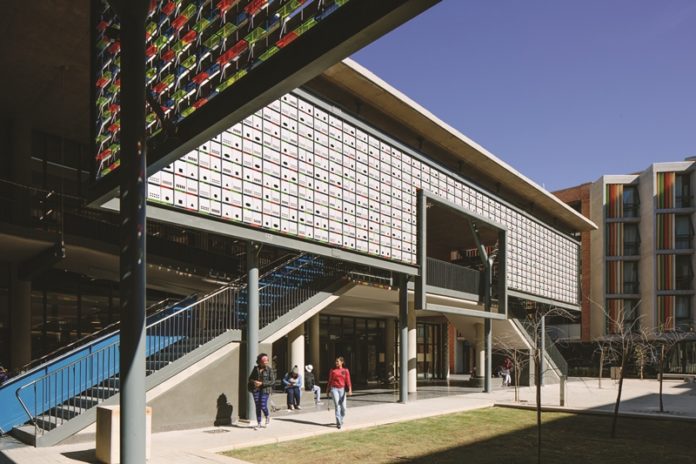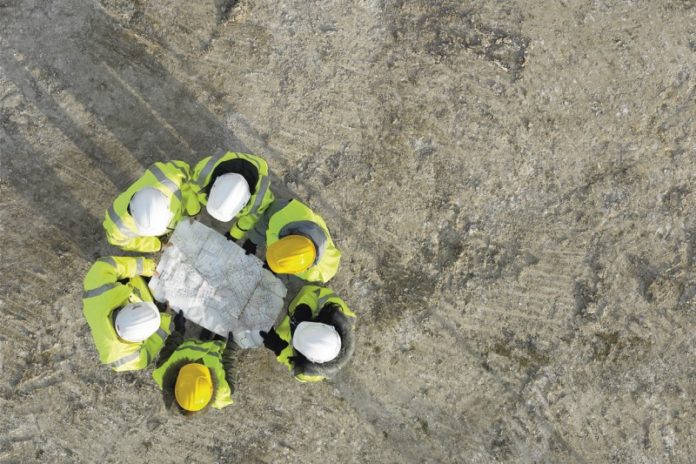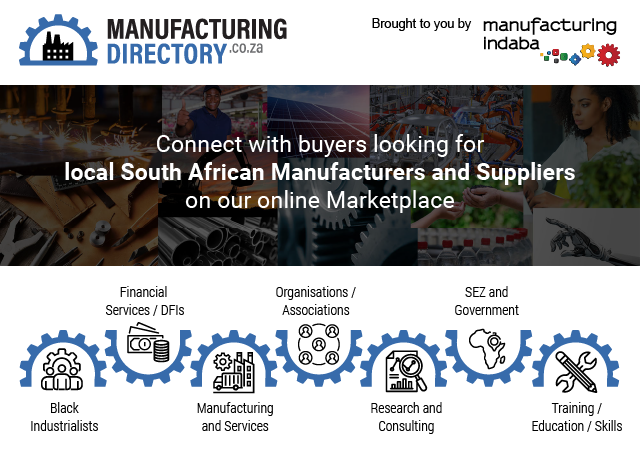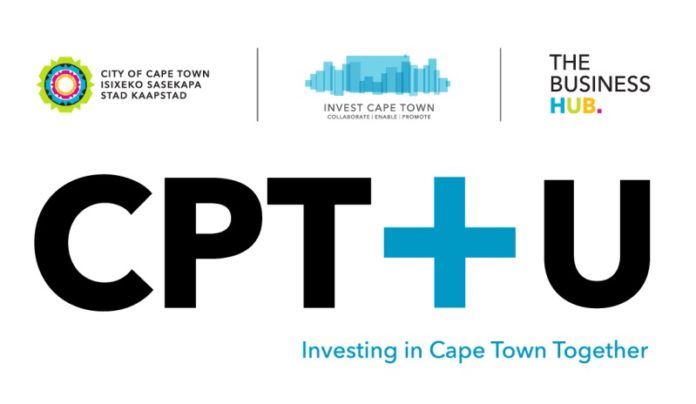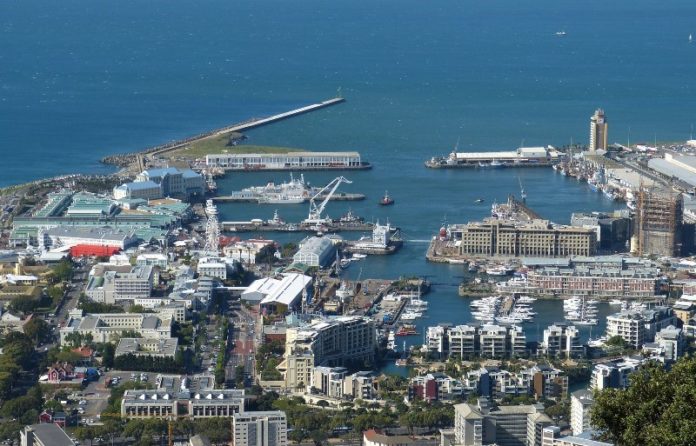A regional overview of the Northern Cape
By John Young
South Africa’s largest province is also the country’s sunniest and investors in solar energy are taking advantage of large tracts of sunlit land to build giant solar farms.
South Africa’s newest university is growing in Kimberley and one of the world’s biggest scientific projects, the Square Kilometre Array (SKA) radio telescope, is taking shape around Carnarvon.
Sol Plaatje University has a strong suit in teacher training, but an expanding curriculum speaks both to being able to exploit the SKA link through subjects such as ICT and data science and an appreciation of the past via heritage studies and paleo-sciences. The university’s location in an arid region means that future programmes will be developed to study agriculture in water-stressed conditions.
Building on the campus, which will eventually cover 190 000 m², is expected to continue for another decade. The competition held to choose architects for the first new buildings lead to some award-winning designs, including the multi-functional building (pictured) which houses a canteen, residences, offices and a retail section. The colourful wind-driven louvres were designed by Savage + Dodd Architects and executed by RVI Architectural Solutions.
Several black and women-owned companies have been active on the 12 projects currently underway. A Great Hall is planned on a portion of the Oppenheimer Gardens.
Mining and agriculture, the traditional pillars of the provincial economy, remain important. Both sectors continue to contribute (despite fluctuating iron-ore prices and periodic droughts) but both sectors are showing potential to expand into new and productive terrain.
The Kalahari Basin contains 80% of the world’s manganese reserve, but only 15% of global production comes from this area so there is enormous scope for development. Several new black-owned manganese projects are underway. The world receives 7% of its diamonds from the Northern Cape, and exports of zinc and lead from the province account for 13% of global demand.

Iron-ore miners have done particularly well recently but it’s the development of new zinc and copper projects that is catching the eye. Vedanta Zinc International has invested $400-million in the first phase of its Gamsberg project and Orion Minerals announced in 2019 that its bankable feasibility study was positive for a planned zinc and copper project at Okiep.
The modern global economy needs particular minerals for its cellphones, renewable energy batteries and electric vehicles, and the Northern Cape has a lot of them. Investors are expected to follow in search of cobalt, copper, lead, nickel and zinc.
A notable feature of Northern Cape agriculture is its diversity, a result of the diverse soil and weather conditions. The 38 000 ha Vaalharts Irrigation Scheme produces wheat, fruit, groundnuts, cotton and maize and along the banks of the Orange River many high-value horticultural products such as table grapes, wine grapes, sultanas and cereal crops are cultivated. A quarter of the country’s onions are produced in the Northern Cape and in the drier areas, goats and sheep do well.
Niche products such as rooibos tea and karakul pelts are other provincial specialities, with aquaculture and mariculture showing great potential. Sea Harvest, the new owner of Viking Aquaculture, has started work on expanding its Diamond Coast Aquaculture facility near Kleinzee. It currently covers 400 ha and produces 100 tons of abalone per year. The plan is to increase production five-fold to cater for increased demand, particularly from Hong Kong.
The Provincial Government of the Northern Cape wants to develop an industrial base for the province based on agriculture and mining.
Various projects such as the creation of a rooibos tea plant are supporting that plan, as are the various spatial planning initiatives being pursued by provincial government. These include corridors of development, industrial parks and Special Economic Zones.
There are plans to build on the existing infrastructure that lies on the east-west axis roughly aligned with the existing N14 national highway and the Sishen-Saldanha railway freight line.
- At the far east of this corridor lies the mining towns of Sishen, Kathu and Kuruman – an
industrial park is planned for Kathu. - In the middle is the town of Upington – an industrial park is envisaged with a focus on solar energy and manufacturing. The existing airport is an important part of the region’s transport and logistics infrastructure.
- Aggeneys lies 277 km west of Upington on the N14 where Vedanta Zinc International is mining zinc – a smelter and a refinery would be the centre pieces of the Namakwa Special Economic Zone.
- Boegoe Baai/Port Nolloth – feasibility studies are being done into deepening and expanding this harbour to be able to export minerals. This would happen in conjunction with investments into fishing and aquaculture.
The Northern Cape is home to six national parks and five provincial parks and nature reserves. The Richtersveld Cultural and Botanical Landscape is a World Heritage Site and the Namaqualand spring flower display draws many visitors.
Most of the province is semi-arid (with a coastal strip) and it receives relatively little rainfall. Summers are hot and winters are cold.

Municipal summary of investment opportunities in the Northern Cape:
The Northern Cape has five district municipalities.
1. Frances Baard District Municipality
Towns: Kimberley, Barkly West, Warrenton, Hartswater, Jan Kempdorp
This district accounts for 40.3% of the province’s economic activity. It is the smallest but with a population of approximately 325 500, it is the most densely populated. Although Kimberley is historically renowned for diamond mining, its economy is now driven by its role as the administrative headquarters of the province. Strategically located and with good infrastructure, Kimberley is the leading centre in the province for retail, financial services, education, commerce and light industry.
The Mittah Seperepere Convention Centre and the Sol Plaatje University are in Kimberley. Mining and agriculture are found in rural municipalities. Agriculture in the region comprises crop cultivation and stock and game farming. The Vaalharts Water Scheme is the largest irrigation project of its kind in the southern hemisphere.
Investment opportunities:
- Sol Plaatje University
- Kimberley International Diamond and Jewellery Academy (KIDJA)
- Mining: diamonds and precious stones
- Manufacturing: textiles, agri-processing.
2. John Taolo Gaetsewe District Municipality
Towns: Kuruman, Kathu, Hotazel
Kuruman is the headquarters of local government in this region and contributes 19.7% to the province’s economy. The local spring produces 20 million litres of water every day.
Most of the district is situated on the Ghaap Plateau, over 1 000 metres above sea level and can experience extreme temperatures. Most agricultural activity is limited to grazing and boer goats are a popular breed among farmers, although game hunting is growing.
Kathu has a well-developed CBD with shopping malls that arose when iron demand was high. The Sishen iron ore mine outside Kathu is a vast undertaking, providing employment for thousands of people. Samancor’s Mamatwan and Wessels manganese mines and plants are situated at Hotazel.
Investment opportunities:
- Kathu Industrial Park (IDC involvement)
- Eco-tourism and hunting
- Boesmansput diving resort
- Gamagara Mining Corridor (housing, infrastructure)
- Goat commercialisation
- Agri-processing: olives, grains, pecan nuts, medicinal plants.

3. Namakwa District Municipality
Towns: Springbok, Calvinia, Niewoudtville, Garies, Williston, Fraserburg, Sutherland, Pofadder, Okiep, Port Nolloth, Alexander Bay
The Namakwa district stretches from the north-western corner of the province, and the country, bordering Namibia and the Atlantic Ocean to the southern border of the province with the Western Cape Province. It includes the famous star-gazing town of Sutherland on its southern edge. The district is sparsely populated, and predominantly rural. It contributes 11.1% to economic activity in the province.
A major new investment has been undertaken in zinc at the Gamsberg project.
The mining and agricultural sectors provide most employment, while tourism and small-scale manufacturing are also present. There are plans to upgrade the harbour at Port Nolloth.
The region’s economy gets a boost every spring when tourists flock to see the veld in bloom. The climate and soil support certain niche crops, and the sites and sights are unique to the region, offering opportunities in agriculture and tourism. Niewoudtville is the site of a rooibos tea factory.
The /Ai/Ais/Richtersveld Transfrontier Park, the Namakwa National Park and the Tankwa Karoo National Park have the potential to grow as travel destinations, as does the western coastline.
Investment opportunities:
- Development of Port Nolloth and smaller harbours
- Hondeklip fish factories
- Abalone and hake
- Kelp processing and export
- Game and nature reserve infrastructure
- Rooibos tea
- Calvinia: sheep and goat processing.
4. Pixley Ka Seme District Municipality
Towns: De Aar, Hanover, Carnarvon, Douglas, Marydale, Prieska, Hopetown, Richmond, Noupoort, Norvalspont, Colesberg
The district covers 102 000 square kilometres in the central Karoo and contributes 11.3% of the economic activity of the province. It has four national roads passing through it. De Aar, the site of the municipal headquarters, has national significance as a railway junction.
The provincial government has published plans to create a logistics hub at De Aar. The area around the town has several new solar farms.
Star gazing is Carnarvon’s great claim to fame, and it is host to the Square Kilometre Array (SKA) radio telescope project.
The district is home to three of South Africa’s major dams. Agricultural production includes wheat, maize, peanuts, grapes, beans, potatoes, nuts and sheep farming.
Pixley Ka Seme is the largest wool-producing district in South Africa, but most of what is produced is processed in the Eastern Cape, so opportunities exist for the establishment of a cotton mill, a tannery and a facility to add value to semi-precious stones. Horse breeding is a valuable contributor to the regional economy.

Investment opportunities:
- De Aar rail cargo hub and workshops
- SKA engineering, science, logistics support and education
- Douglas holiday resort
- Booktown Richmond festivals
- Wool, pistachio nuts and venison processing
- Water tourism activities on dams.
5. ZF Mgcawu District Municipality
Towns: Upington, Groblershoop, Kenhardt, Kakamas, Postmasberg
The Orange River supports a thriving agricultural sector and a growing tourism sector. The investment climate is ripe for tourism along the Orange River and around unique physical attractions such as the Augrabies Falls.
Upington is already a busy town with processing facilities for agricultural products. The planned development of an industrial park in the town and next to Upington International Airport will boost manufacturing. The main targeted sectors at this stage are in the renewable energy sector, for example, solar panels.
Most of the population of the //Khara Hais Local Municipality lives in Upington. Agriculture is a prominent feature of the local economy, as well as wholesale and retail services in and around the town. Various kinds of high-speed car racing and testing takes place on the roads, tracks and airport runway in or near the town.
The processing of wine and dried fruit is one of the biggest manufacturing activities in the province. Mining activities take place in Kgatelopele, where diamonds and lime are found. Together with sheep and cattle farming, mining provides most of the employment to be found in Siyanda.
Investment opportunities:
- Upington Cargo and Electronics hub: SKA, renewable energy and aircraft storage
- Upington International Airport
- Orange River Smallholder Farmer Settlement and Development Programme
- Tourism: wine tours, adventure and hunting
- Upington vehicle testing site
- Business Process Outsourcing (BPO)
Find more insight into business and investment in the Northern Cape, read the e-book here:
Enquiries
For more information about a specific investment opportunity, please contact the Northern Cape Department of Economic Development and Tourism:

[contact-form-7 id=”1320″ title=”Northern Cape Department of Economic Development and Tourism”]



